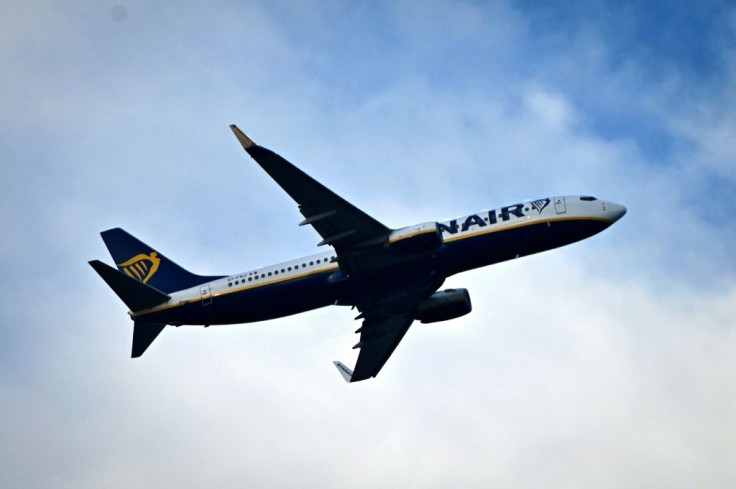Ryanair To Cut 3,000 Jobs; CEO O’Leary Slams European Carriers Taking Huge Bailouts

KEY POINTS
- Ryanair will slash the pay of existing staff by up to 20%
- Ryanair will cut 3,000 jobs, mostly pilots, cabin crew
- Ryanair expects to report a net loss of more than $110 million in the first quarter
Irish budget airline Ryanair said it will cut 3,000 jobs, mostly pilots and cabin crew, out of its 17,000-strong workforce, due to the halt in air travel caused by the coronavirus crisis. The Dublin-based carrier also said it will slash the pay of existing staff by up to 20% and close several of its aircraft bases across Europe until air travel demand recovers.
Ryanair chief executive Michael O’Leary, whose salary was already cut by 50% for April and May, has agreed to extend this reduction rate through March 2021.
Ryanair predicted that passenger demand and normal pricing will likely not recover for another two years at least.
“The Ryanair airlines will shortly notify their trade unions about its restructuring and job loss program, which will commence from July 2020,” the company said. “These plans will be subject to consultation but will affect all Ryanair airlines.”
O’Leary did not rule out the possibility of future job cuts.
“If a [coronavirus] vaccine isn’t found then clearly we may have to announce more cuts and deeper cuts into the future,” he told BBC.
Fórsa, the Irish trade union which represents Ryanair cabin crew and pilots, said it will be seek an early engagement with the airline, but will make no public comments until management provides a detailed plan to the union.
Ryanair also said it expects to report a net loss of more than €100 million ($110 million) in the first quarter, with additional losses in the second quarter.
The carrier said it will ground more than 99% of its flights through July.
Ryanair has also entered into discussions with Boeing (BA) and Airbus to cut aircraft orders over the next two years to “more accurately reflect a slower and more distorted EU air travel market in a post-Covid-19 world.”
O’Leary has also criticized the huge government bailouts received by some European airlines, including Air France-KLM and Lufthansa.
“[The] whole competitive market has now been completely turned on its head,” he said. “The weakest airlines going into the crisis -- Lufthansa, Air France, KLM, Alitalia -- who were going to, in normal circumstances, have to restructure and retrench are now going to be enormously enriched with this state aid doping. I think what we are facing now is that . . . they ’ ll be able to make life very difficult for the well-run airlines like ourselves, [British Airways] and EasyJet. ”
In response, O’Leary said Ryanair will have to downsize over the next 12 months in order to compete.
“Unless we have materially lower costs for the next 12-24 months, we won’t be able to operate successfully in a market where air fares are going to be materially lower,” he warned.
O’Leary confirmed that Ryanair filed a legal complaint to the European Commission over its fears regarding airlines receiving massive state aid. Ryanair will also likely challenge these government bailouts in European courts.
“Air France and Lufthansa are subsidy junkies hoovering up state aid. We support transparent non-discriminatory schemes like payroll support,” O’Leary told BBC. “[But] why does Lufthansa need another [$13.2 billion] on top of that? It means that for the next three to five years they can engage in below-cost selling. We face unfair competition against legacy airlines in Europe getting unfair state aid.”
Stephen Furlong, transport analyst with Davy Stockbrokers of Dublin, said coronavirus is the worst crisis airlines have ever faced.
"I would say that some airlines will disappear, some even strong airlines will be smaller and then others will be growing slower than they would have, but will emerge ultimately stronger, and Ryanair will be one of them," Furlong said.
© Copyright IBTimes 2024. All rights reserved.





















